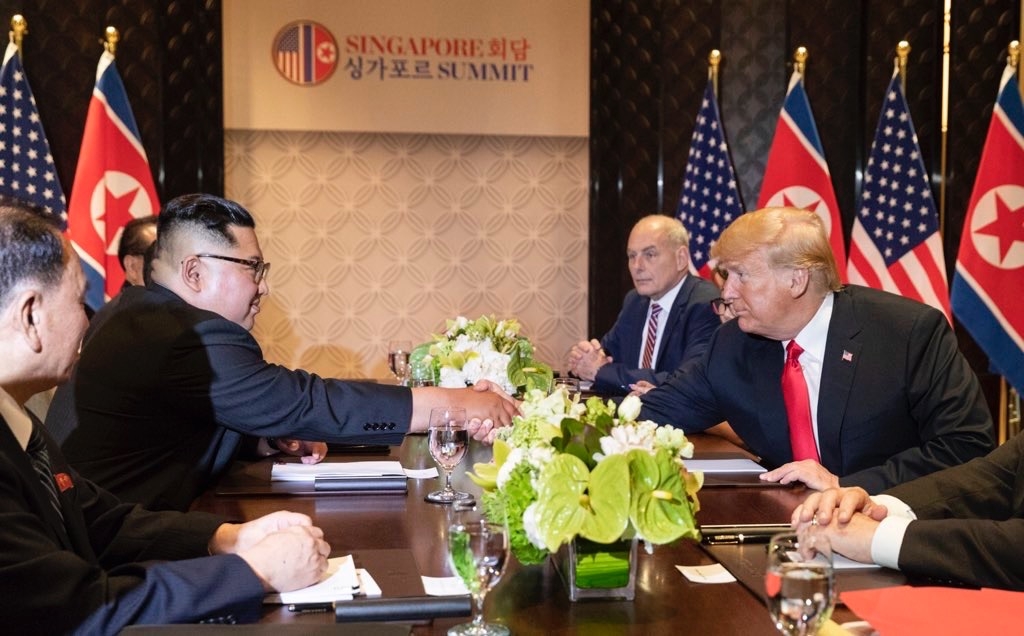by Peter Huessy
The Chinese government made a deliberate choice in 1982 -- in violation of its obligations under the Nuclear Non-Proliferation Treaty of 1968 -- to disperse nuclear-weapons technology to its allies in the Third World.
- China is rarely called to task in Washington by US leaders for its role in proliferating nuclear-weapons programs in some of the world's most notorious rogue states. Pressure is rarely placed on Beijing even by US arms-control groups.
- The Chinese government made a deliberate choice in 1982 -- in violation of its obligations under the Nuclear Non-Proliferation Treaty of 1968 -- to disperse nuclear-weapons technology to its allies in the Third World. Through the A.Q. Khan nuclear smuggling network in Pakistan, China was able to help produce nuclear weapons in Pakistan and North Korea, and start nuclear programs of varying significance in Iran, Libya and Iraq, and later in Syria.
- The Trump administration is doing more than its predecessors to meet the challenges and threats posed by North Korea, and therefore should be encouraged to continue the policy of employing a mixture of tough measures and diplomacy.

The
Trump administration is doing more than its predecessors to meet the
challenges and threats posed by North Korea, and therefore should be
encouraged to continue the policy of employing a mixture of tough
measures and diplomacy. Pictured: U.S. President Donald Trump meets for
negotiations with North Korean dictator Kim Jong-un in Singapore, on
June 12, 2018. (Image source: Dan Scavino Jr./Wikimedia Commons)
|
At a recent event on Capitol Hill -- hosted by the Washington-based Mitchell Institute -- the former China Country Director at the Office of the Secretary of Defense, Joe Bosco, defended U.S. President Donald Trump's North Korea policy against critics who were accusing the White House either of leaning too far in the direction of diplomacy with Pyongyang, or too bent on imposing maximum economic and military pressure on it.
The criticism, according to Bosco, stems from two false narratives -- emanating from Pyongyang and Beijing -- which have been governing the debate.
The first is that North Korea is justified in having nuclear weapons, due to America's long-standing "hostile policy" towards the regime in Pyongyang. The second is that China has had virtually no role in the establishment of North Korea's nuclear program -- and that Beijing seeks "denuclearization" and "stability" on the Korean peninsula.
To grasp the absurdity of North Korea's claim that its nuclear program is "defensive" in nature and created to counter American "hostility" -- one need only ask why Pyongyang was party to the 1994 "Agreed Framework Between the United States of America and the Democratic People's Republic of Korea" and the 2003 Six-Party Talks.
China's denial of having had anything to do with North Korea's nuclear weapons program is equally ridiculous.
In their 2009 book, The Nuclear Express: A Political History of the Bomb and Its Proliferation, co-authors Thomas C. Reed and Danny B. Stillman illustrate that the Chinese government made a deliberate choice in 1982 -- in violation of its obligations under the Nuclear Non-Proliferation Treaty of 1968 -- to disperse nuclear-weapons technology to its allies in the Third World. Through the A.Q. Khan nuclear smuggling network in Pakistan, China was able to help produce nuclear weapons in Pakistan and North Korea, and start nuclear programs of varying significance in Iran, Libya and Iraq, and later in Syria.
Nevertheless, China is rarely called to task in by US leaders for its role in proliferating nuclear-weapons programs in some of the world's most notorious rogue states. Pressure is rarely placed on Beijing even by US arms-control groups. They, one would assume, would be most upset with China's proliferation policies and seek to get China to admit that its gambit in deploying nuclear weapons in North Korea was designed to fuel tensions on the Korean peninsula.
Ignoring China's role is only one way in which Trump's critics undermine his administration's attempts at forging a successful policy to keep North Korea's nuclear program in check.
Another, more important, way in which Trump's detractors harm his ability to re-establish deterrence against Pyongyang is by denouncing any move by the White House or State Department. On the one hand, senior members of Congress routinely accuse the administration of provoking a confrontation and risking war through economic sanctions, missile-defense deployments and tough rhetoric.
When, however, the administration scheduled a summit with North Korean dictator Kim Jong-un, and suspended certain joint military exercises to be held with South Korea, Trump was criticized by a former member of the National Security Council for achieving "virtually nothing."
Yet the North Korean government did suspend tests of nuclear weapons and long-range ballistic missiles -- and for the first time in nearly 25 years, a North Korean leader put a nuclear deal on the table.
This act, although far short of denuclearization, did eliminate the endless speculation of what the North Korean government would or would not do with its nuclear weapons, if left undeterred.
What this means is that the Trump administration is doing more than its predecessors to meet the challenges and threats posed by North Korea, and therefore should be encouraged to continue the policy of employing a mixture of tough measures and diplomacy.
Dr. Peter Huessy is President of GeoStrategic Analysis, a defense consulting firm he founded in 1981, as well as Director of Strategic Deterrent Studies at the Mitchell Institute for Aerospace Studies. He was also for 20 years, the senior defense consultant at the National Defense University Foundation.
Source: https://www.gatestoneinstitute.org/14356/trump-north-korea-policy
Follow Middle East and Terrorism on Twitter
No comments:
Post a Comment